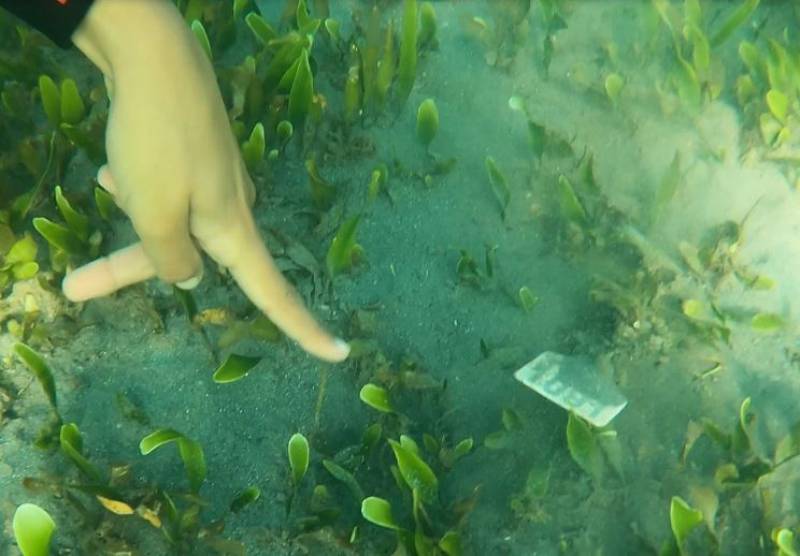- Region
- Vega baja
- Marina Alta
- Marina Baixa
- Alicante
- Baix Vinalopo
- Alto & Mitja Vinalopo
-
ALL TOWNS
- ALICANTE TOWNS
- Albatera
- Alfaz Del Pi
- Alicante City
- Alcoy
- Almoradi
- Benitatxell
- Bigastro
- Benferri
- Benidorm
- Calosa de Segura
- Calpe
- Catral
- Costa Blanca
- Cox
- Daya Vieja
- Denia
- Elche
- Elda
- Granja de Rocamora
- Guardamar del Segura
- Jacarilla
- Los Montesinos
- Orihuela
- Pedreguer
- Pilar de Horadada
- Playa Flamenca
- Quesada
- Rafal
- Redovan
- Rojales
- San Isidro
- Torrevieja
- Comunidad Valenciana


- EDITIONS:
 Spanish News Today
Spanish News Today
 Murcia Today
Murcia Today
 Andalucia Today
Andalucia Today
article_detail
Date Published: 10/09/2024
Critically endangered baby mussels stolen from the Mar Menor
23 juvenile nacras, or giant mussels, were swiped from a protected area of the Murcia lagoon

Murcia’s regional environmental ministry is investigating the recent theft of 23 baby nacras (Pinna nobilis) from the Encañizada area of the Mar Menor, a devastating plunder that could set back the conservation efforts for this delicate mollusc by years.
This ancient species, often referred to as giant fan mussels, can get up to over a metre in length when fully grown. It is a critically endangered species and there are currently fewer than 500 healthy adult specimens in the Region of Murcia. In fact, this is the only place on the Spanish coast, aside from the Ebro Delta, where they’re known to survive.
To make matters worse, the juveniles were torn from the seabed in a part of the Mar Menor that’s supposed to be off limits to swimmers and boats.
Regional government sources have stressed that “this is a very serious incident that threatens the biodiversity of a protected area such as the Mar Menor. The collection of nacras, whether alive or dead, is a crime that can lead to prison sentences, because it is a threatened species ‘in danger of extinction’ and this act is classified as a crime against the environment by the Penal Code.”
If the culprits are caught, they face up to two years behind bars.
Giant mussels have been dying out in the Mediterranean for several years thanks to the presence of a persistent parasite which attacks the digestive system and connective tissue of the molluscs. Sadly, the last living specimen disappeared from the Valencian Community in 2018.
These, the largest bivalves in Europe, are vitally important to the health of the Mar Menor as they have incredible filtration abilities, even in relatively small numbers. Their disappearance represents a significant blow to the ongoing tasks to revive the lagoon.
The regional authorities are currently waiting for the Spanish government to give them the go-ahead to ban boats in several other parts of the lagoon where the mussels are thriving.
The Iberian lynx, the Moorish tortoise and the loggerhead turtle are three more species in danger of extinction that need an intervention in the Region of Murcia if their survival is to be ensured.
Image: CARM
article_detail
staff.inc.ali
Loading
Contact Murcia Today: Editorial 000 000 000 /
Office 000 000 000




























